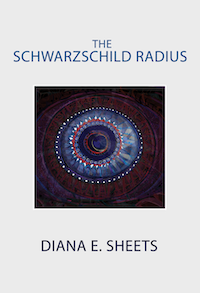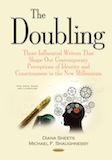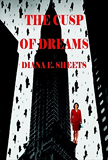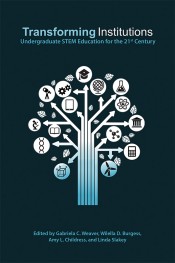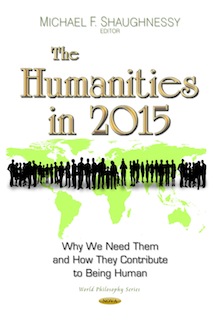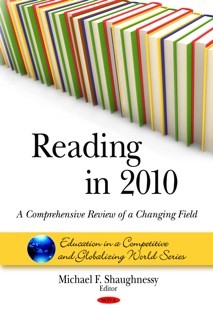Academe, Theory, and our Cultural Demise
Copyright © 2008 by Diana E. Sheets
From the totalitarian point of view history is something to be created rather than learned . . . . Totalitarianism demands in fact the continuous alteration of the past, and in the long run probably demands a disbelief in the very existence of objective truth.
--George Orwell, “The Prevention of Literature” (excerpted from Graham Good’s essay “Presentism: Postmodernism, Poststructuralism, Postcolonialism,” published in Theory’s Empire, Columbia University Press, 2005, 287)
To witness the destruction of a civilization is a terrible phenomenon. You ache for all those phantom limbs. You awake day after day to a perpetual nightmare, disconsolate about the loss of great literature. You no longer have the ability to discuss anything meaningful with most, if not everyone, with whom you speak. Your world, your rarified world of ideas, has been all but obliterated. In place of objective truth founded on historical knowledge embedded in a canon of great literature, cultural relativity prevails. You retreat into your Imaginary Library to immerse yourself in those eternal truths that have been excised from contemporary consciousness. Your grief is inconsolable. Your greatest fear is that one day even your memory library will be obliterated and replaced with dark matter. That time is rapidly approaching.
For readers eager to understand how dark matter has subsumed our cultural heritage, there are two books: What’s Happened to the Humanities? (Edited by Alvin Kernan, Princeton University Press, 1997) and, more recently, Theory’s Empire: An Anthology of Dissent (Edited by Daphne Patai and Will H. Corral). Let us consider each in turn.
The humanities, as delineated by Kernan, encompass the disciplines of literature, philosophy, art history, music, religion, languages, and history. Between 1960 and 1990, higher education expanded from 2,000 to 3,595 institutions with the largest increase—from 700 to 1,576—occurring in the public institutions. Overall, enrollments of full-time students rose from 3.5 million to 15.3 million with public institutions increasing from 60 to 80 percent of this total. The number of undergraduate women grew from 37 to 51 percent while minorities increased from 12 to 28 percent. The changing distribution of students reflected significant demographic shifts in gender, ethnicity, and social class. This transformation coincided with dramatic alterations in social norms and cultural values during this period, which dramatically influenced the material taught in the humanities. The democratization of higher education caused students to pursue studies that would assist them in obtaining jobs. Consequently, the percentage of degrees conferred in the humanities declined from 20.7 percent in 1966 to 12.7 percent in 1993 while doctoral degrees during this timeframe decreased from 13.8 percent to 9.1 percent, respectively (3-6).
These changing demographics and their impact on the humanities coincided with a cultural rebellion that devalued the “elitist” traditions founded on Enlightenment principles derived from a European/American heritage dating back to Greco-Roman times. With the generational rebellion of the late 1960’s, foundational studies were often replaced with courses that emphasized cultural relevancy, multiculturalism, and social justice in an effort to redress gender, ethnic, and class grievances (4-12). The ramifications of these trends are explored at length in the concluding essay, “Scholarship as Social Action,” by David Bromwich (220-243).
The eleven essays that compose What’s Happened to the Humanities? suggest the means by which poststructuralist methodologies succeeded in annihilating Enlightenment values by the 1990’s, thereby ensuring the triumph of postmodernism. This collection, which includes, among others, contributions from Denis Donoghue, Frank Kermode, and Christopher Ricks, demands careful attention. The engaged reader will discover how demography and social trends impacted pedagogy and method to undermine institutional values.
For our purposes we will consider two essays. “Beyond Method” by Gertrude Himmelfarb examines the devastation wrought by Theory on the discipline of history and, more generally, the humanities. “The Demise of Disciplinary Authority” by Louis Menand demonstrates the impact of the “culture wars” on educational institutions of higher learning.
“For the journalist,” suggests Himmelfarb, “the medium is the message. For the scholar, the method is the message” (143). The prevailing method today, she suggests, is postmodernism, a catchall term that applies to poststructuralism, deconstruction, new historicism, semiotics, and political movements associated with feminism and multiculturalism. Its orientation was derived from the German philosophers Nietzsche and Heidegger and developed by French intellectuals, most notably by Derrida and Foucault. This approach was initially adopted by literature departments in
The impact of postmodernism on history, Himmelfarb argues, reversed more than two centuries of efforts by scholars to create a rigorous discipline comprising a methodology founded on objective analysis in an effort to discover, in Leopold von Ranke’s phrase, history as it “actually happened” (144-5). Certainly, history is never absolutely knowable, archives are selective, and the interpretations of historians are always influenced by the times in which they live. However, where once there was instruction based on historical narrative relying on the painstaking use of original and secondary sources documented by copious footnotes and bibliography, for the postmodernist, the past is conceived as a “social construct” that is inherently as subjective and indeterminate as a poem or fictional story. Narrative history, which relies on causality, chronology, class, and nationality derived from empirical evidence, was increasingly dismissed as “Anglo-Saxon” by French historians such as Theodore Zeldon (see France 1848-1945: Politics and Anger, Oxford University Press, 1979, 1). The scope of analysis undertaken by postmodernists might expand (longue durée), as with Fernand Braudel’s Capitalism and Material Life, 1400-1800, or compress to a brief time span illuminating the life of a single individual in a style characteristic of a novel. The latter’s subjective method, Himmelfarb argues, is exemplified in The Return of Martin Guerre. Written by American scholar Natalie Zemon Davis, this narration creatively imagines the life of a peasant and his imposter who lived in
Himmelfarb illuminates through example and explication her case that postmodern methodology replaced realism with invented or constructed histories. Social history became increasingly devoid of factual evidence and saturated with impressionistic analysis—oral interviews, fiction, psychoanalysis—featuring the lives of ordinary people increasingly filtered through the politicized perspective of social justice (150-4). More recently, subjectivism has become so prevalent in the humanities that Daphne Patai has suggested that contemporary French practices of égo-histoire represents little more than “nouveau solipsism” (Himmelfarb, 155, 160, citing Patai’s “Sick and Tired of Scholars’ Nouveau Solipsism,” Chronicle of Higher Education, February 23, 1994, A52). The consequence of postmodernism and its acceptance throughout the disciplines has been, as Himmelfarb noted, catastrophic.
In literature, postmodernism entails the denial of the fixity of any text, of the authority of the author over the critic or reader, of any canon of great books, and of the very ideas of greatness. In philosophy, it is a denial of the constancy of language, of any correspondence between language and reality, indeed of any essential reality or any proximate truth about reality. In history, it is a denial of the objectivity of the historian, of the factuality or reality of the past, and thus the possibility of arriving at any truths about the past. And so with the other disciplines: it induces a radical skepticism, relativism, and subjectivism that denies not this or that truth about any subject but the very idea of truth—that denies even the ideal of truth, truth as something to aspire to even if it can never be fully attained. (144)
In his essay “The Demise of Disciplinary Authority,” Louis Menand examines the means by which American universities since 1967 have abandoned the institutional structure established between 1870 and 1915 that was founded on the twin practices of professionalism and academic rigor. By 1915, undergraduates could pursue specialized studies while taking electives and what we would now refer to as the core curriculum, and graduate schools were training the specialists required to teach future generations of scholars (201-2).
As Menand notes, this organizational framework “professionalized the knowledge business,” thereby serving as a bulwark against the competitive influences of a free-market economy (203). Professionals were meant to operate as disinterested agents and, by way of compensation, protected from the volatility of the workplace. The underlying assumption was that the freedom to pursue academic studies was the best means of ensuring excellence. Methods and subjects appropriate to the field of study were influenced by scientific rationalization, thereby accelerating the university’s movement away from pedagogy to research. The discipline of English, initially dominated by philology, increasingly shifted its emphasis first to literary history and, subsequently, to literary criticism (206-7).
The incorporation of literary criticism within English departments, suggests Menand, was fostered by the methodology of the New Criticism during the 1950’s, which favored “the application of philosophically grounded methods of inquiry” to analyze literature in “abstract or theoretical terms” by means of comparison with other literary texts (207). This approach was well suited to the increasingly professional rigor imposed on academic studies that applied the “brick by brick” approach to scholarship, rewarded years of accumulated expertise developed by researching a given subject, as well as familiarity with language and symbolic representations exhibited in metaphor, genre, structure, and semiosis analyzed with the presumption of political and intellectual impartiality (208-9).
But by the 1970’s the deconstructionist mode pioneered by Derrida and promulgated by the Yale critics—Paul de Man, J. Hillis Miller, and Geoffrey Hartman—laid waste to disciplinary rigor in favor of, as de Man characterized it, “vertiginous possibilities of referential aberration” (210). The result was “interdisciplinary, postdisciplinary, or essentially nondisciplinary activities” added to traditional fields of inquiry (214). Rampant professionalism, absent a defining methodology within departments, became the norm. Menand concludes boldly by advocating a paradigm shift from credentialism, specialization, and professionalism in favor of hiring individuals outside the academy to bring fresh ideas to the now moribund humanities (214-16).
*
Theory’s Empire: An Anthology of Dissent traces the annihilation of scholarship in the academy caused by the ascendance of Theory, which began in the late 1960’s and became predominant by the 1980’s. The title is borrowed from Christopher Ricks essay, “The Pursuit of Metaphor” in What’s Happened to the Humanities in which he suggests “Theory’s empire [is] an empire zealously inquisitorial about every form of empire but its own” (cited in Theory’s Empire, 1, 14). For anyone who has lingered on the fringes of academe and has been astonished by the primacy of Theory and wants to understand the means by which scholarly pursuits of truth and excellence have been undermined by political correctness, the forty-seven essays in Theory’s Empire are required reading.
As the editors Daphne Patai and Will Corral demonstrate, Theory reigns supreme throughout academic institutions today. The political and social absolutism of this world-view has all but annihilated our cultural heritage (1-6). Young scholars today have little training in historical methodology, sociological practices, philosophical perspectives, and scarcely any understanding of the foundations of Western Civilization. What has currency is interdisciplinary “cultural studies” that is thinly disguised political commentary. This anthology covers essays from the 1970’s to 2004, tracing the path of our intellectual demise as the methodologies of Theory devolved from structuralism to postmodernism and, finally, the framing of all scholarly endeavors with respect to power politics (11-13).
Theory’s Empire demonstrates that Theory is no theory at all but a pastiche of approaches—formalism, Marxism, structuralism, Lacan psychoanalytic theories, feminism, historicism, as well as Queer Theory and Postcolonial Studies—that cannot be applied with any consistency (5). René Wellek and Tzvetran Todrov acknowledge the usefulness of structuralism that, as with New Criticism, is concerned with analyzing the meaning of the text (50, 53). The difficulty begins, suggests Wellek, with deconstruction theory—frequently referred to also as poststructualism—which is a retreat from objective reality. The consequences of accepting this approach, he suggests, are catastrophic.
The abolition of aesthetics, the blurring of the distinction between poetry and critical prose, the rejection of the very idea of correct interpretation in favor of misreading, the denial to all literature of any reference to reality are all symptoms of a profound malaise. If literature has nothing to say about our minds and the cosmos, about love and death, about humanity in other times and other countries, literature loses its meaning. (49)
Morris Dickstein traces “The Rise and Fall of ‘Practical’ Criticism” from I.A. Richards’s pioneering Practical Criticism (1929) to the radical departure from this method employed by poststructuralist Roland Barthes in the 1960’s and 1970’s and the descent into the critical abyss that followed with the formalization of deconstruction by Derrida. The result has been the application of Theory with its myopic focus on contemporary political and cultural commentary in lieu of disciplinary expertise and a familiarity with great works of literature, particularly those prior to the 20th century (63, 65, 68-9, 71-3).
Graham Good argues that Theory is the very embodiment of Orwell’s totalitarianism since it is ensconced in presentism, “the belief in the primacy of the present, and the refusal to be guided by a vision either of the past or of the future” (287). Presentism denies the knowability of the past and insists on interpreting events subjectively. As understood through the lens of postcolonial Theory, therefore, all British literature—indeed, potentially all western literature—should be read not for its aesthetic value but rather for its depiction of power politics (291-3).
Frank Kermode, whose essay appears in both Theory’s Empire and What’s Happened to the Humanities? questions the radical epistemic breaks postulated by Michel Foucault in which apocalyptic ruptures create seismically discontinuous historical eras, a methodology, Kermode suggests, that “is antimodernist, opposed to notions of totality . . . and . . . scornful of such metanarrative survivals as reason and truth” (608). Rarely, he argues, is there such a radical break from the past as complete as contemporaries may have believed (609).
For
J.G. Merquior supports the argument that poststructuralism is shoddy in its application of Theory to the humanities, suggesting that it is, in fact, “theorrhea,” a diarrhea of theoretical confusion where Theory serves “as a pretext for sloppy thinking and little analysis, fraught with anathemas against modern civilization” (240).
For D.G. Myers, it is all just “Bad Writing.” No longer do scholars strive to create great works that will contribute to critical knowledge linked to ideas through the ages. Instead, scholarship is about “status and authority” with its purpose the obtainment of “political power” (354), a judgment shared by Eugene Goodheart who suggests the “culture wars” are fueled by judgments “dictated by political or ideological interests” (508).
For Todd Gitlin the dark matter of Theory is identity politics, “cultures” born out of group or ethnic affiliations in which distinctive qualities and characteristics shape group associations that become identity cultures that solidify alliances and embrace “collective hurt.” Individualism disappears. Each group closes rank. There is no possibility of reconciliation with the larger intellectual community. Distinctions are accentuated with little prospect for reconciliation with the whole. Marginality is celebrated and a totalitarianism group think ensues (400-3).
Protected by the academic superstructure as a relatively cheap alternative to disruptive protest, the separate programs cultivate a rapture of marginality. For identity-based movements, the margin is the place to be. Within each margin, there are always more margins to carve out. Postmodernist thought confirms that there is no center; or, rather, that those who claim the center—who claim a common truth or even the possibility that any common truth is attainable—are false universalizers, colonizers, hegemonists. The center, if there is one, is the malevolent Other. But this false center—so the argument goes—is only a margin in disguise. The margins are bastions from which to launch intellectual raids on a center that has no right to be central and has, moreover, lost confidence in itself. (403-4)
However, readers beware! Identity politics has become the collective group think of university faculties since the 1980’s. These “workers,” operating from the fringes of capitalism, view themselves from a “rapture of marginality” while attacking the center—that materialistic world beyond the walls of academe—which they regard as the cause of their economic, social, and intellectual disenfranchisement.
*
Despite the continuing prevalence of Theory throughout the academy, it has been in acute crisis since radical Islamic fundamentalism declared war against capitalism Christendom, overall, and
As Lawrence Wright noted in his Pulitzer Prize-winning book, The
In large part, it was because they saw
Since 2001, Theory has been struggling to demonstrate its continued relevance in light of the seismic shifts in the plate tectonics of global politics. In 2003, a symposium at the
Yet, in defiance of the overwhelming evidence of its irrelevance, Theory—useless, relativistic Theory—continues. In 2007, Jonathan Culler published The Literary in Theory (Stanford University Press), a spirited defense against those who claim “Theory is dead” (1). “If Theory is reduced to the ghost of itself,” suggested Culler quoting Jean-Michel Rabaté, “then this is a very obtrusive ghost that keeps walking and shaking its chains in our old academic castles” (3, referencing Rabaté’s The Future of Theory, Blackwell, 2002, 10). But in order to revive this specter, Culler reinserts literature back into his textual analysis and defines Theory as “work that succeeds in challenging and reorienting thinking in fields other than those in which it originates” (3). Bauerlein’s assessment presented in Literary Criticism, An Autopsy (University of Pennsylvania Press, 1997) of the conceptual limitations of Theory has never appeared more apt: “the wearisome repetitiveness and poor quality of much second generation theoretical work—all conspired to dethrone critical theory, to render it passé . . . . The term ‘theory’ now signifies anything non-empirical, conceptual, or abstract” (131-2).
Yet the ghostly presence of Theory prevails. Recently, at a conference entitled “Erich Auerbach and the Future of Criticism” held April 18-19, 2008 at the University of Illinois, the emphasis was less on postmodernism and its future than reviving Auerbach’s Mimesis, one of the foundational texts for Theory.
What may we conclude? For more than a generation Theory has dominated the Humanities, laying waste to centuries of accumulated wisdom. Literature, philosophy, art history, music, religion, language, and history no longer have disciplinary rigor, let alone a defined canon. Students are no longer expected to master a body of knowledge that extends from ancient
Given the financial constraints on universities and colleges, we cannot afford to support departments and faculty who celebrate marginalia to the detriment of Western Civilization and those world cultures worthy of inclusion. The events of 9/11 have profoundly altered our social and political landscape laying waste to cultural relativism in favor of truth and excellence. In the process it made clear that postmodern Theory must be excised from not only our educational institutions but also from our society. Despite the mythologies perpetuated for more than a generation, History is a record of the victors, not the vanquished. Let us fight to retain our ascendancy or suffer the consequences.


